Understanding The Factors That Contribute To Postpartum Autoimmune Flares
Understanding the factors that contribute to postpartum autoimmune flares can help new mothers manage and prevent these episodes. Here are the key factors:
Hormonal Changes: During pregnancy, the body shifts towards an anti-inflammatory state to protect the developing fetus. After delivery, hormones like estrogen and progesterone rapidly decrease, which can result in increased inflammation. This hormonal fluctuation can trigger or exacerbate autoimmune responses, making it crucial for new mothers to monitor their health closely and seek medical advice if symptoms arise.
Immune System Modulation: The immune system is naturally suppressed during pregnancy to prevent the body from rejecting the fetus, which is partly foreign due to the father's DNA. After childbirth, the immune system reactivates and may overcompensate, leading to an increased risk of autoimmune flare-ups. Understanding this reactivation can help anticipate and manage potential flares.
Physical Stress: Childbirth is a significant physical event that can place immense stress on the body. The recovery period involves healing from delivery, whether vaginal or cesarean, and this physical stress can exacerbate autoimmune conditions. New mothers need time to recover and avoid overexertion to support their immune system.
Breastfeeding: Breastfeeding requires significant energy and nutrients, which can place additional demands on a mother's body. If not properly managed, this can lead to nutrient depletion, potentially triggering autoimmune responses. Ensuring adequate nutrition and hydration with remineralized water while breastfeeding is essential for maintaining overall health and preventing flare-ups.
Sleep Deprivation: New mothers often experience fragmented sleep due to their newborn's needs. Lack of sleep can weaken the immune system and increase inflammation, triggering autoimmune flare-ups. Prioritizing rest, even in short intervals, can help mitigate these effects and support immune function.
Nutritional Deficiencies: The increased nutritional needs during pregnancy and breastfeeding can lead to deficiencies if not adequately addressed. Essential nutrients like vitamin A, vitamin D, iron, calcium, and omega-3 fatty acids are imperative for immune health. Consuming a nutrient-dense diet founded on traditional nutrition principles supports your immune system and accelerates healing.
Postpartum Autoimmune Flares Prevention and Management Tools
Here are some effective strategies to manage and prevent postpartum autoimmune flares:
Prioritizing Rest and Sleep: Incorporate short naps and rest periods into your day whenever possible. Rest is essential for healing and immune regulation, even if uninterrupted sleep is unavailable. Create a restful environment and seek opportunities for rest when your baby sleeps.
Nutrient-Dense Diet:Nutrient-Dense Diet: Focus on consuming nutrient-dense foods that support immune health and recovery. Incorporate a variety of animal proteins, organ meats, healthy fats, cooked vegetables, and fruit to replenish essential nutrients.
Hydration: Stay hydrated, especially if you are breastfeeding. Adequate hydration supports overall health and can help manage inflammation. Aim to drink at least 100 ounces of remineralized water throughout the day and consider warm teas, bone broth, and hydrating fruits.
Gentle Movement and Exercise: Engage in gentle exercises, such as light walking, postpartum yoga, or BirthFit to promote circulation and reduce stress. Listen to your body and avoid overexertion. Gentle movement can help support recovery and improve your overall sense of well-being.
Stress Management: Incorporate stress-reduction techniques, such as deep breathing exercises, yoga nidra, and meditation practices, into your daily routine. You can do this by breathing deeply anytime your baby rests on your chest, as it will regulate both of your nervous systems. Managing stress is crucial for preventing autoimmune flares.
Seeking Support: Motherhood is a journey not to be taken alone. Seek help from family, friends, or mother-focused groups. Sharing responsibilities and talking about your experiences can reduce stress and provide emotional support. Building a support network can make a significant difference in your postpartum journey.
Professional Guidance: If you're ready to take the next step let's work together to create a holistic plan tailored to you! If you’re looking for support or guidance on this journey, consider booking a Discovery Call to customize a support plan based around your unique needs and journey.
The 40-Day Postpartum Ritual: Consider the traditional practice of staying home for the first 40 days after giving birth and focusing on rest and recovery. During this period, consuming warm, nourishing, and hearty foods can help replenish your body and provide robust breast milk. This ritual supports the body's healing process, helps balance your immune system, and ensures you have the energy needed to care for your newborn while protecting the health of your hormones.
Meal Preparation: Plan to have 6 to 8 weeks’ worth of meals to support you in the early postpartum period. This can be achieved through a circle of friends who will provide you with traditional nourishing meals or by spending time during pregnancy making and freezing as many meals as possible. Having nutritious meals readily available will support your recovery and help prevent autoimmune flare-ups.
Conclusion
Postpartum autoimmune flares are influenced by a combination of hormonal changes, immune system reactivation, physical stress, breastfeeding demands, sleep deprivation, and nutritional deficiencies. Understanding these factors can help in developing effective management strategies. By prioritizing rest, nutrition, hydration, gentle exercise, stress management, seeking support, and incorporating traditional practices like the 40-day postpartum ritual, new mothers can better manage their autoimmune conditions and promote overall health during this demanding period. Emphasizing self-care and professional guidance will empower new mothers to navigate the postpartum phase with resilience and confidence.

